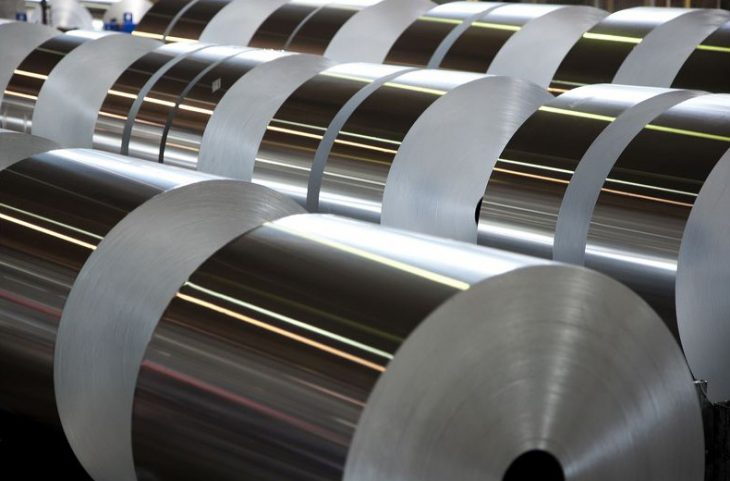The U.S. Department of Commerce (DOC) made a preliminary determination that imports of certain aluminum foil from China are benefitting from unfair government subsidies. As a result, the agency will instruct U.S. Customs and Border Protection to require U.S. importers of aluminum foil from China to collect estimated countervailing duties at the time of importation.
The aluminum foil subject to the Commerce Department’s investigation includes all imports from China of aluminum foil that is less than 0.2 mm in thickness (less than 0.0078 inches) in reels weighing more than 25 lbs and that is not backed, etched for use in capacitors, or cut to shape. The aluminum foil subject to the investigations is used in a variety of consumer and industrial applications, with specific uses that include: household foil, flexible and semi-rigid cookware, product packaging, automotive and HVAC heat exchangers, among other common uses.
Imports of aluminum foil from China increased by nearly 40% between 2014 and 2016. China was the largest supplier of aluminum foil to the U.S. market in 2016, accounting for more than 70% of all imports. “The Aluminum Association and its foil-producing members are very pleased with the Commerce Department’s finding and we greatly appreciate Secretary Ross’s leadership in enforcing U.S. trade laws to combat unfair practices,” said Heidi Brock, president and CEO of the Aluminum Association. “This is an important step to begin restoring a level playing field for U.S. aluminum foil production, an industry that supports more than 20,000 direct, indirect, and induced American jobs, and accounts for $6.8 billion in economic activity. U.S. aluminum foil producers are among the most competitive producers in the world, but they cannot compete against products that are subsidized by the Chinese government and sold at unfairly low prices.”
The Commerce Department’s determination follows the filing of antidumping and countervailing duty petitions by The Aluminum Association’s Trade Enforcement Working Group in March 2017 — marking the first time the Aluminum Association has filed unfair trade cases on behalf of its members in its nearly 85-year history. As a result of allegations in the petition, the DOC is investigating 26 different subsidy programs maintained by the Government of China.
Based on information gathered to date, the DOC calculated preliminary subsidy margins ranging from 16.56 to 80.97% of the value of the imported aluminum foil. In particular, the DOC calculated subsidy margins of 16.56 and 28.33 percent, respectively, for Jiangsu Zhongji Lamination Materials Co., Ltd. and Hangzhou Dingsheng Import & Export Co., Ltd. and its affiliates, which the Department selected for mandatory, company-specific investigation. In addition, the Commerce Department assigned a preliminary subsidy margin of 80.97% to shipments of aluminum foil by Loften Aluminium (Hong Kong) Limited and Manakin Industries, LLC, which the agency found to be uncooperative as they failed to participate to the best of their ability in the investigation after being selected as mandatory respondents. Finally, the Department calculated a subsidy margin of 22.45% for all other Chinese producers and exporters that cooperated in the Department’s investigation, but were not selected for individual investigation.
The next step in this trade action will be the DOC’s issuance of its preliminary antidumping duty determination, which is scheduled to be announced on Thursday, October 5, 2017. If an affirmative preliminary antidumping determination is issued by the Department, U.S. importers will be required to post cash deposits or bonds on all entries of aluminum foil from China in the amount of the subsidy and dumping margin calculated by the agency.
This countervailing duty case against aluminum foil from China is independent of the Aluminum 232 investigation launched in April 2017 to consider whether aluminum overcapacity, dumping, illegal subsidies, and other factors threaten American economic security and military preparedness.

